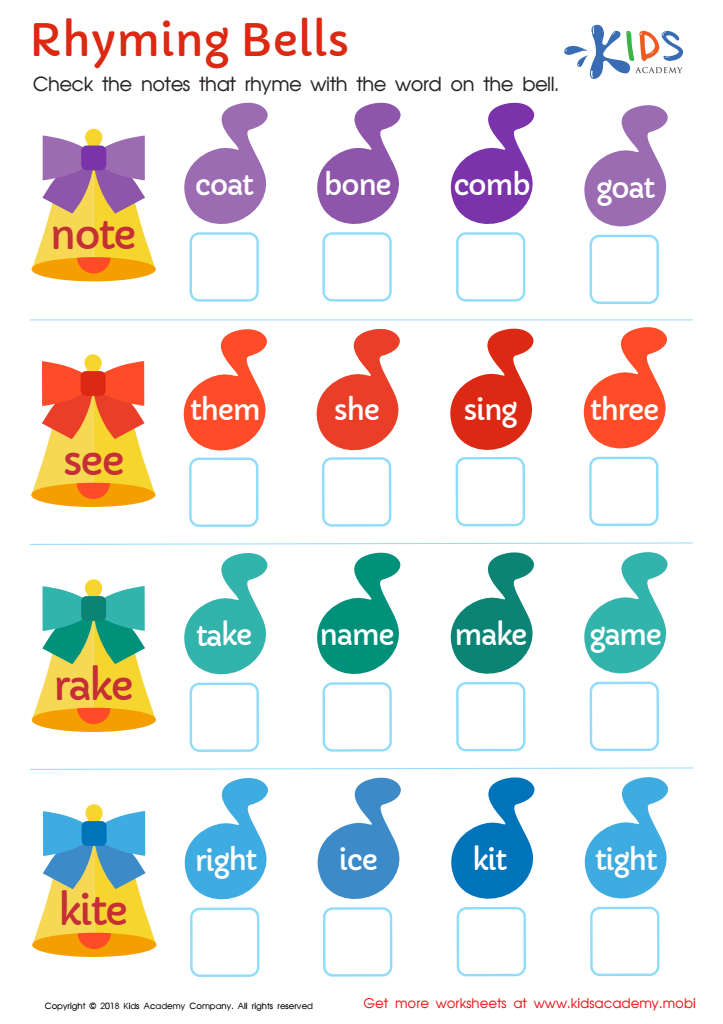Rhyming skills development Normal Rhyming Worksheets for Ages 4-7
4 filtered results
-
From - To
Enhance your child's phonetic awareness with our "Rhyming Skills Development Normal Rhyming Worksheets for Ages 4-7". Designed specifically for early learners, these engaging worksheets help children recognize and produce rhymes, fostering their listening and language skills. Perfect for pre-K to 1st grade, each activity builds a solid foundation in reading by making learning fun and interactive. With a variety of colorful and educative exercises, your child will explore the sounds of words, developing a keen sense for patterns and phonics. Start your child on the path to proficient reading with our expertly crafted rhyming worksheets.


Rhyming Words Rhyming Worksheet


Rhyming Bells Worksheet


First Words: Picture Rhymes Worksheet
Developing rhyming skills in children aged 4-7 is a crucial aspect of early literacy education. Parents and teachers should care deeply about this skill for several reasons. Firstly, rhyming enhances phonemic awareness, which is the ability to recognize and manipulate sounds in words. This foundational skill is essential for learning to read and spell. When children identify and create rhymes, they become more attuned to the smaller sound units in language, aiding their ability to decode new words.
Secondly, rhyming expands vocabulary and comprehension. As children are exposed to a variety of rhymes, they encounter new words and contexts, contributing to their understanding and use of language effectively. Rhymes often present words in playful, memorable ways, making language learning enjoyable and relatable.
Additionally, rhyming helps to improve memory and cognitive development. The act of recalling rhyming patterns exercises a child’s brain and reinforces learning through repetition and prediction, enhancing their ability to remember sequences and structures in language.
Moreover, rhymes and rhythmic activities foster a love for reading and literature. They make learning interactive and fun, encouraging young children to engage with books, songs, and poetry. This early positive exposure lays the groundwork for lifelong reading habits and attitudes towards learning.
In conclusion, prioritizing rhyming skills development in early education provides children with critical language tools, supporting their overall literacy growth and fostering a positive relationship with learning.
 Assign to My Students
Assign to My Students














